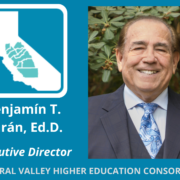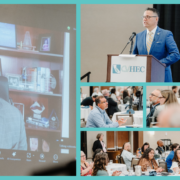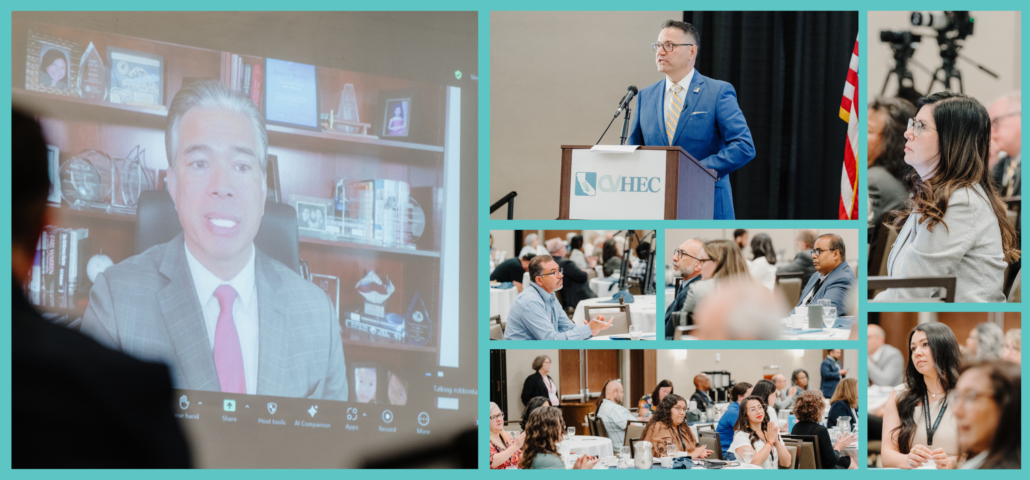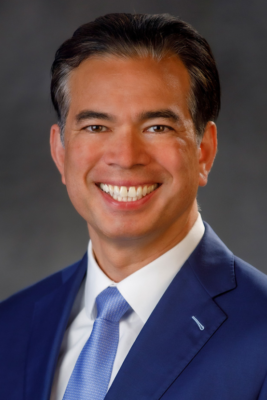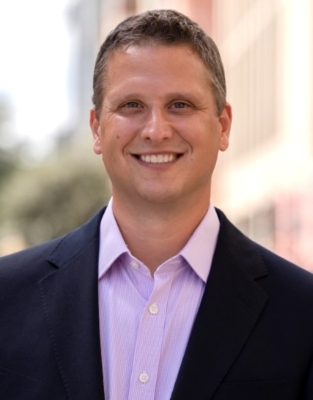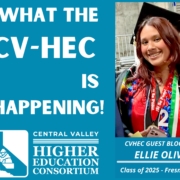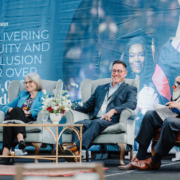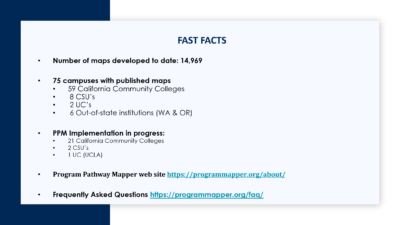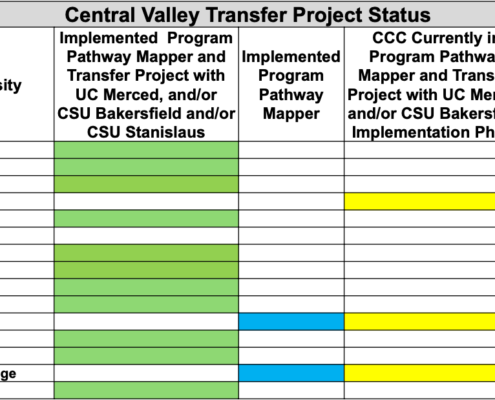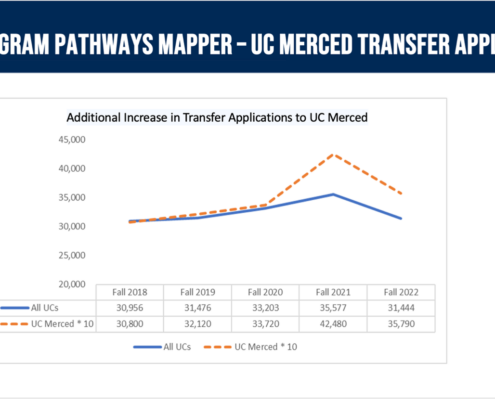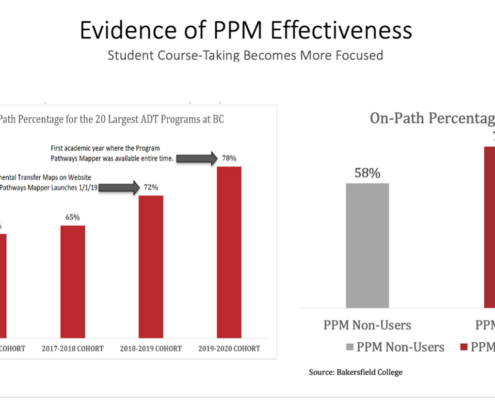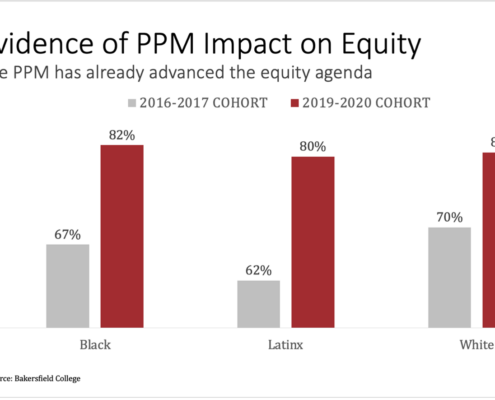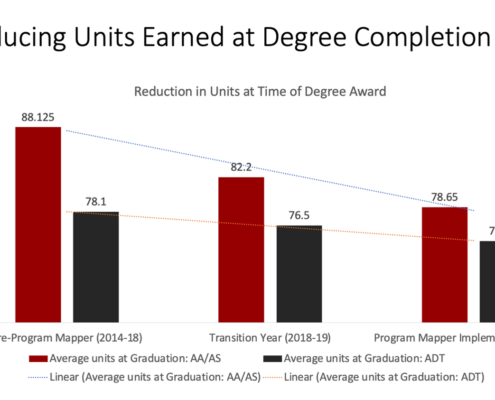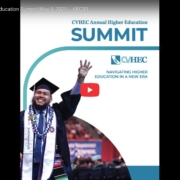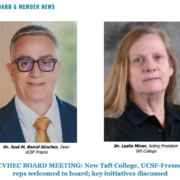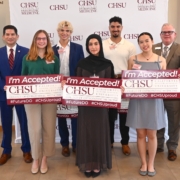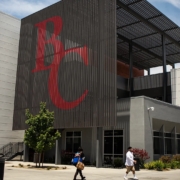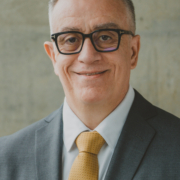CVHEC EXECUTIVE DIRECTOR’S MESSAGE (June 2025)
CVHEC board meeting and summit: ‘reaffirming
the power of regional unity in advancing student success’
Greetings CVHEC friends and colleagues …
Welcome to our June newsletter as we close out another academic year in the Central Valley. We wish all our colleagues a Happy National Higher Education Day on June 6!
This year, especially the last five months under a new Administration in Washington D.C., has been a tumultuous and challenging year in higher education. That is why it was appropriate for the consortium to wrap up the year with our annual The Central Valley Higher Education Summit May 9 under the theme, “Navigating Higher Education in a New Era – The Central Valley Way.”

In keeping with that theme, the CVHEC Board of Directors met the day before the summit and hosted a virtual presentation on the current state of higher education in the nation delivered by Jon Fansmith, senior vice president of Governmental Relations at the American Council on Education (ACE). His presentation and interaction with the presidents and chancellors of our region’s higher education institutions were well received and insightful.
On summit day, May 9, we continued the conversations hearing from our legislative partners: Congressmembers Jim Costa (21st District) and Adam Gray (13th District), both from the U.S House of Representatives; and California State Assemblymember Esmeralda Zamudio Soria (District 27). The three legislators shared their perspectives on the current state of the nation and specific areas and initiatives they were involved in to improve the higher education landscape in the country.
The summit further showcased much of the work valley college and universities undertook this year to improve student access and success in the current environment. Panels for the day, including representatives from the state’s four higher education systems, highlighted the great efforts of faculty and staff in the region to make the Central Valley a great place for higher education as well our students and their experiences in addition.
The event ended with a conversation between summit attendees and California State Attorney General Rob Bonta, who joined us virtually to share his thoughts and comments about California’s role with other states in combatting the challenges coming from the current Administration. He was able and willing to answer some questions from the floor.
The board meeting and summit came at a pivotal time. Our region continues to navigate pressing challenges — from enrollment shifts to financial aid changes — while national policies are quickly evolving in ways that deeply affect our students. As challenges in higher education continue to evolve — particularly for our rural and underserved areas — CVHEC remains a critical force in ensuring that the Central Valley’s colleges and universities not only adapt but thrive.
With continued collaboration and a shared vision, the consortium board meeting and summit reaffirmed the power of regional unity in advancing student success. Bringing our leadership together in one room to engage in this dialogue is essential for shaping a voice for higher education the Central Way as we move forward.
Now, with the completion of another commencement season, we hope you enjoy our blog this month featuring Class of 2025 graduate Ellie Oliva recounting the joys of walking for two degrees in less than one year. This is why we do it all!
We wish all our colleagues a Happy National Higher Education Day on June 6 with our photo galleries (summit and board/reception) … as well as a great and well-deserved summer break. We hope you all have an opportunity to find some time to rest and reflect on another productive year as we prepare to meet new challenges for the advancement of our students. Now, enjoy the warm months ahead!
CVHEC SUMMIT 25: California attorney general, ACE VP assess the higher ed challenge
California Attorney General Rob Bonta tells the CVHEC Summit 2025: “This is an all-hands-on-deck, all-tools-in-the-toolbox moment where everyone needs to rise up and push back against the attacks and make sure that we’re continuing our pathway to progress.”
‘ …we’re here to represent California’s beautifully diverse communities and ensure everyone
can achieve their vision of the California dream. So we’re here for you.’
– Calif. AG Rob Bonta
BY TOM URIBES
CVHEC Communications/Media Coordinator
The Central Valley Higher Education Consortium, earlier this month, delivered the voices of two key leaders at the head of the quick changing education landscape facing the nation amidst policy and funding changes by the current White House Administration.
During a virtual forum at the Central Valley Higher Education Summit in Fresno May 9, California Attorney General Rob Bonta told the participants they are facing “an all-hands-on-deck moment” as changes under the Trump administration threaten educational equity and federal funding.
The day before at the quarterly meeting of the CVHEC Board of Directors – made up of the university and college chancellors, presidents and educational administrators of 28 institutions of higher education in the valley’s 10-county region – American Council on Education (ACE) Senior Vice President Jon Fansmith delivered a deeply informative and, at times, sobering virtual conversation including an alert about possible TRIO Programs funding cuts.
Both gatherings provided more than 175 participants the opportunity to review progress regarding ongoing strategies and initiatives in CVHEC’s quest to improve educational outcomes under the summit theme “Navigating Higher Education in a New Era – The Central Valley Way.”
“We are navigating a landscape shaped by sweeping policy shifts, federal restructuring, and the lasting impact of a historic pandemic,” Dr. Benjamin Durán, CVHEC executive director, told the assembly.
“At the same time, we are adapting to revolutionary changes in instructional delivery, integrating artificial intelligence into academic life and responding to the evolving demands of a dynamic workforce. These unprecedented challenges are not just obstacles—they are the defining forces of a new era in higher education. As the summit theme affirms, we are called to lead, adapt and innovate as we chart a course through this pivotal time.”
In addition to Bonta and Fansmith, the CVHEC summit, funded by the College Futures Foundation, included national and state lawmakers providing updates on the legislative front and representatives of the California’s four systems of higher ed sharing perspectives regarding White House policies on their respective landscapes statewide (see related story).
Dr. Juan Sánchez Muñoz, chancellor of UC Merced and chair of the CVHEC board, introduced Bonta in the 2 p.m. virtual forum after lunch.
“As you know, the attorney general has been at the forefront not just for California, but nationally leading legal response to some very concerning directives from the federal government related to educational funding,” said Chancellor Muñoz.
‘An all-hands-on-deck, all-tools-in-the-toolbox moment …’
Bonta recounted that he and 19 other attorneys general have filed 20 lawsuits nationwide to stop such actions as freezing $3 trillion in capital critical federal funding that would threaten hundreds of billions of dollars in California annually as well as affecting immigration and international students.
“We also issued guidance to higher education institutions and K-12 schools in response to the Department of Education’s threats to withdraw federal funding from institutions that retain DEI programs and policies,” the attorney general said.
“Bringing our diverse perspectives to campus benefits all students and everyone deserves equal access to public education. Educational institutions should be encouraged to continue to foster diversity, equity, inclusion and accessibility.”
Bonta thanked the educators for protecting access to higher education and pledged his commitment to stand with them.
“The California Department of Justice is here to protect and defend, and enforce our state’s laws and protections,” Bonta told the summit participants. “And we’re here to represent all of California’s beautifully diverse communities and ensure everyone can achieve their vision of the California dream. So we’re here for you. And you can be sure that if Trump breaks the law or violates the Constitution, we will see him in court.”
Bonta noted that the attorneys general have successfully challenged the Trump administration “for conducting an illegal mass firing of nearly half of all employees at the US Department of Education.
“I sued the Trump administration for conducting an illegal mass firing of federal probationary employees,” he said.
As a result, a federal judge has blocked the Trump administration from firing thousands of workers at the Department of Education, ruling that the announced terminations were a thinly veiled effort to dismantle the entire department without congressional approval. The judge said that the thousands of terminations announced in March “had deeply disrupted services for students, families and states, making processes less efficient.”
Also, another federal judge temporarily blocked the Trump administration from preventing Harvard from enrolling foreign students.
Bonta also addressed concerns about the treatment of immigrants, an issue colleges are facing with their DACA students.
“Now more than ever, it is imperative that we make sure all immigrants and their families know the rights and protections afforded to immigrants under the law — rights and protections that I’m here to defend and to enforce,” Bonta said.
“This is an all-hands-on-deck, all-tools-in-the-toolbox moment where everyone needs to rise up and push back against the attacks and make sure that we’re continuing our pathway to progress.”
One summit participant said she was glad to hear the attorney general make that declaration that day.
Dr. Iliana Pérez, executive director of Immigrants Rising based in Long Beach which works with immigrant students across the state supporting their pursuit of access to higher education, career opportunities and entrepreneurship, said the attorney general’s perspective around immigration as expressed in the virtual forum “is so needed at this moment in time.”
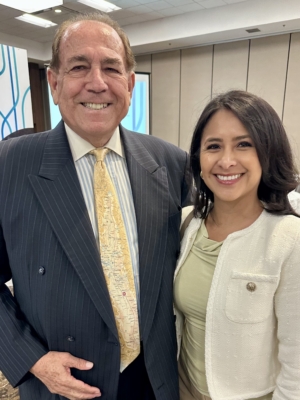
Dr. Iliana Perez, executive director of Immigrants Rising with CVHEC Executive Director Dr. Benjamin Durán after Attorney General Rob Bonta’s virtual remarks at the 2025 higher ed summit.
An alumna of CVHEC member Fresno State who wrote a blog for the CVHEC newsletter in February, Dr. Pérez said, “There’s a lot of fear in the community. To have an attorney general that is definitely taking a stance that is supportive of the rights of all individuals in California, including immigrants, I think delivers the kind of message we need to hear. We need to hear that California stands with its residents, regardless of immigration status.”
Once undocumented herself, Dr. Pérez has been an advocate for Dreamer students for over a decade, especially in the area of entrepreneurship, and asserts it is in the best interest of the community at large to provide access to higher education support for them.
“The reality is that undocumented students, and all immigrants in the state, are contributing to the economy,” Dr. Pérez said.
“These students are graduating, they’re pursuing careers in a variety of different fields, they are contributing to the workforce. It really is a disinvestment if we don’t protect their rights, if we don’t protect the freedoms of all students. So this is a time for higher education leaders to be able to come together to really be thinking about how important it is to stand in support of students.”
That was accomplished in the day’s panels beginning with Dr. Benjamín Durán, CVHEC executive director, in the opening welcome session, echoing Chancellor Muñoz’ assessment that higher education in California — and across the nation — “is facing a transformative moment” that beckoned the valley’s education leaders to the summit.
It was also carried out the day before when the higher ed CEOs sat as the CVHEC Board of Directors and heard Fansmith after Duran laid out the board’s charge.
“As challenges in higher education continue to evolve — particularly for rural and underserved areas — CVHEC remains a critical force in ensuring that the Central Valley’s colleges and universities not only adapt but thrive,” Durán said.
‘… a sense of the temperature and temperament in DC …’
This dynamic was underscored in ACE senior vice president Fansmith’s virtual presentation to the board about pressing national issues affecting higher education.
He was introduced by Chancellor Muñoz, a member of the ACE board who noted that Fansmith has a daily ongoing interaction with legislators in the halls of Congress.
“John is on the Hill almost every day, he’s in the entrails of all of these congressional offices both on the House and the Senate side and regularly provides updates to the ACE members,” said Muñoz who arranged for Fansmith to provide the CVHEC board “a sense of the temperature and the temperament of what he’s seeing in DC relative to higher education legislation.”
In the board session, Fansmith addressed the challenges campuses face surrounding immigrant student populations, an especially relevant issue in the Central Valley, which is home to a large immigrant and first-generation college student population.
He provided insights into the shifting landscape of federal education grants and how institutions can navigate these changes to continue supporting underserved students.
In particular, he discussed serious federal funding threats to higher education support programs such as TRIO.
Fansmith explained that the Trump administration’s proposed budget for the next fiscal year includes eliminating the TRIO program, along with other major cuts to educational support programs such as GEAR UP, work-study, Supplemental Educational Opportunity Grants (SEOG), and campus childcare.
While Congress is unlikely to approve these drastic cuts in full, even partial adoption could cause significant harm to institutions and students, he said.
Despite the proposed elimination, Fansmith expressed cautious optimism about TRIO’s future. He noted that TRIO enjoys strong bipartisan support, especially from influential lawmakers such as the Republican chairman of the Appropriations Committee.
He also emphasized the effectiveness of TRIO advocates within the Department of Education. However, recent political tensions have generated some pushback from outside education circles, he cautioned.
He summarized that, while TRIO faces real threats, its broad support in Congress gives it a better chance of survival than some other programs. Fansmith said he and his colleagues continue working in Washington to protect these critical resources for underserved students.
Duran said the two presentations underscored CVHEC’s mission and ideals.
“With continued collaboration and a shared vision, the consortium board meeting and summit reaffirmed the power of regional unity in advancing student success,” said Duran who is also president-emeritus of Merced College. “Bringing our leadership together in one room to engage in this dialogue is essential for shaping a voice for higher education in the Central Way as we move forward.”
‘What the CV-HEC is Happening’ Blog (June): Commencement 2025 – Ellie Oliva
Like many seniors, Ellie Oliva had big college dreams after graduating from high school. But, also like numerous students, her plans changed and she “took a break” to earn some money and “live life” before eventually returning to her academic journey. For this commencement season “What the CV-HEC is Happening” blog, we recruited Ellie to tell her story of not giving up on her dream and eventually experiencing the thrill of graduating from two CVHEC-member colleges in the past 365 days including walking in two commencement events in May — commencement month for most institutions of higher education. Right after her Fresno State graduation May 17, Ellie began her full-time professional career with the Roman Catholic Diocese of Fresno as its communications and engagement coordinator.
The commencement ‘walk’ – a joyous
and validating experience
BY ELLIE OLIVA
Class of 2025 – Fresno State
Growing up, I always had a plan … vague, but a plan nonetheless.
I would graduate high school and go to college — University of Southern California — because staying in Fresno was not a part of that plan, no matter how unsteady that was. I would major in psychology and become a therapist, and that’s where my “plan” ended. Imagine my surprise when it didn’t play out the way I envisioned it.
I started off on-track, graduating from Clovis West High School in 2015. However, after missing several college application deadlines, I detoured from my plan and enrolled at Clovis Community College. I started with psychology, then changed it to liberal studies – thinking maybe I could become a teacher. Finally, I landed in communications. Looking back, these mishaps helped me figure out what I really wanted. By the time I decided to transfer over to Fresno City College, things started to feel right.
I enjoyed my time at Fresno City. Unfortunately, however, no matter how pleasant it was to be in a new environment and pursuing a major I finally liked, there was still something missing. I did not feel motivated or genuinely happy about where I was in my life. I had not been a full-time student since my first semester at Clovis Community, and yet, I still felt like it was too much to keep up with. When the pandemic hit, and everything went online, I took it as a sign to take a much-needed break.
My break ended in spring 2023 when I re-enrolled and completed my Associate of Arts degree at Fresno City College. I had a new plan, new motivation and fire that told me I was back on the right path. By spring 2024, I was a full-time student at Fresno State majoring in Media, Communications and Journalism with an emphasis in Advertising and Public Relations.
Finally enrolled at a four-year university, I was equally excited and intimidated — especially after not being a full-time student since my first semester at Clovis Community. The feeling of being at Fresno State and pursuing a major that I thoroughly enjoyed was indescribable. I could write and be creative while being surrounded by people with similar interests. I could work in a team and share interesting ideas that would be continuously bounced off one another. It all felt so right.
The journey wasn’t over, though. That same semester I made a grad plan with an advisor to map out the rest of my time at Fresno State. I asked if we could make it so I would graduate by spring 2025. It’s not that I was in a hurry, but I was just so excited and the most motivated I had ever been. I wanted to challenge myself and see if I could do it. By fall 2024, my 16 units turned into 18 units and I found myself enrolled in seven classes as well as an internship with the Fresno Arts Council, and still working part-time at a local restaurant. It was a very busy year, but worth it. And, I was still able to make the Dean’s List.
That brings us to the spring 2025 semester, the semester I finally graduated from Fresno State. It was my favorite semester by far. I made new friends and gained incredible experiences with my projects and internship at Fresnoland. I noticed the most growth this semester, personally and academically.
All my hard work was quickly coming to a head. Just the year before, I graduated from Fresno City, and now I was getting ready to walk in not one Fresno State commencement, but two – the College of Arts and Humanities Convocation and the Chicano/Latino Commencement Celebration. The decision to walk in both commencement events was an easy one. I was originally planning to just do the one graduation for my major – Arts and Humanities. However, when my grandparents made me aware of the Chicano/Latino Commencement, I knew it would be important to them, so I agreed to walk in that one as well. I am the first in my family to graduate college, and being able to celebrate my heritage along with this milestone was thrilling.
Getting ready for the Arts and Humanities graduation on May 16 was by far the most surreal moment I had. My friends and I walked through the backstage halls of the Save Mart Center and into the arena where we could see everyone’s friends and families in the stands. Being surrounded by all of my peers, whom I had seen every day for the past year, was an incredible feeling.
The Chicano/Latino Commencement was the next day, May 17, and the high was still there. This commencement was bigger than the one before and much more lively. There were so many students that, after the first section had walked, we took a break which ended up turning into a dance party on the arena floor. There was music, clapping and both crowds (students and attendees) started a wave that went around at least ten times! The shared excitement and joy was beautiful, infectious and unforgettable. It was a true celebration.
All of that leads to where I am now. My undergrad journey has ended, and a new chapter begins. About a month before I graduated, I sought and was offered a position at the Roman Catholic Diocese of Fresno as communications and engagement coordinator. Here at the beginning of June, I am completing my fourth week, and it has been a marvelous experience so far. Graduating with a degree in advertising/public relations as opposed to a psychology degree is gratifying.
My higher education journey has been such a validating experience. I was able to prove to myself that I can do it and I am a hard worker. School was always something I wanted to resume. I am overjoyed that I made that decision because it has brought forth all these opportunities I do not believe I would have gotten otherwise.
Although my original “plan” did not go accordingly, I still am so proud of myself and am excited for what’s next. I am grateful for the higher education opportunities that are available to us today.
(CVHEC blog submissions are welcome for consideration: Tom Uribes, cvheccommunications@mail.fresnostate.edu).
UPDATE: CVHEC increases transfers the Central Valley Way
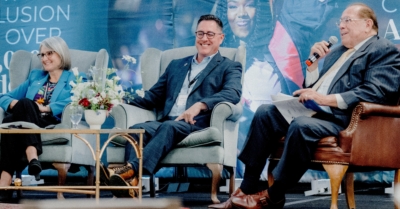
Dr. James Zimmerman (center) on the CVHEC Summit panel, “What the CVHEC is Happening in the Central Valley,” May 9 demonstrated how the Central Valley Transfer Project addresses educational disparities in the region by fostering increased access to higher education for students in the Central Valley. Here he is flanked by Dr. Kristin Clark, chancellor-emeritus of the West Hills Community College District and now CVHEC’s dual enrollment lead, and Dr. Benjamín Durán, president-emeritus of Merced College and now CVHEC’s executive director.
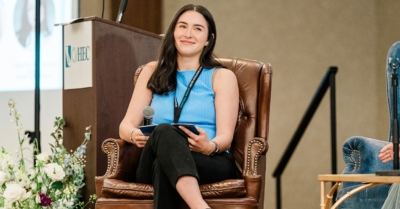
Transfer student Araceli Tilley testified in the CVHEC summit student panel May 9 that the the Central Valley Transfer Program’s Program Pathways Mapper app not only helped her, but she uses it to help other students in the Merced College Student Success Program where she now works. She has presented her Transfer Project/Mapper experiences at several conferences statewide.
Consortium Transfer Project moves from CCC
‘demonstration’ status to ‘Vision 2030
strategy
BY STAN A. CARRIZOSA, SR.
CVHEC Regional Coordinator
(President-emeritus, College of the Sequoias)
The Central Valley Higher Education Consortium (CVHEC) is renowned for its effectiveness in fostering regional collaboration among all of the Valley’s higher education institutions.
Most notable, as evidenced by the recent Central Valley Higher Education Summit, is the ability to bring intersegmental partners together from the University of California, California State University and California Community college systems as well as independent/private institutions for the purpose of increasing access and success of Central Valley students in their higher education experience.
At the summit, a more recent and very powerful example of this was the presentation by Dr. James Zimmerman on the panel, “What the CVHEC is Happening in the Central Valley,” where he discussed the success of the Central Valley Transfer Project initiated by CVHEC in partnership with UC Merced (UCM), backed in practice by the testimony of successful transfer student Araceli Tilley’s convincing testimony in the student panel earlier that morning.
Determined to overcome the low number of community college transfers to UCM, this partnership set out to carve a new path in accelerating successful transfers.
Fully launched in 2020 the project focuses on streamlining and enhancing the process of transferring from community colleges to four-year institutions within California’s Central Valley. This project seeks to address challenges faced by students in navigating complex transfer pathways and aims to increase the number of students successfully earning bachelor’s degrees.
Historic firsts: faculty input/ CCC implementation statewide
It was an historic first when CVHEC brought UC faculty to the table alongside community college faculty in convenings structured to review and approve lower-division course patterns for successful transfer to UCM.
Dr. Zimmerman recalled the dynamics of this collaboration at the summit re-telling the message UC Merced conveyed to Bakersfield College to lay what would be the foundation of the Transfer Project:
“ ‘Our faculty want to partner with your faculty to make sure that the courses that you have on your campuses, will transfer to UC Merced with no problems’,” he said. “ ‘Can we have a sit down where your faculty talk to our faculty, and we start having a course-by-course listing that shows if they spend their first two years on your campus, they transfer to our campus for two years and they finish with a bachelor’s degree?’ That’s what the goal was.”
He noted that “the cornerstone of what makes this so powerful is the Program Pathways Mapper,” software app students can use with ease to align classes for transfer.
Enter student Araceli. When Araceli speaks, college chancellors, presidents and university officials in the Central Valley’s 10-county region – and throughout California — listen.
She first did so at the 2023 CVHEC Summit on the student panel testifying how the Central Valley Transfer Program’s Program Pathways Mapper helped her get from Merced College to the University of California, Merced the year before. We have also taken her to the California League of Community Colleges statewide conference to share her story.
“Because of the Pathways Program Mapper, I was actually able to graduate on time because I didn’t realize that the UC had different requirements for a communications class than the CSU system,” Araceli recounted during the student panel at the recent CVHEC Summit last month. “So on the pathways mapper, I saw that the class that I needed, I had to take my last semester at Merced College. If not, I wouldn’t have been able to transfer to UC Merced.”
But this time she had some new developments to share underscoring the Transfer Program’s growth and success in the 18 months since her first summit appearance.
“Now, I work at Merced College in the Student Success Program, and I’m able to use it to help other students that come for help,” Araceli said. “Just anyone that I run into, I’m able to help them navigate — maybe what college they want to go to, because they can look at different requirements at different colleges, or what the course load is going to look like, what classes they’re going to be required to take depending on where they go. I always recommend the Pathways Mapper to them because they’re able to see what the different courses are going to look like, what their path is going to look like. So I’ve utilized it not only for myself, but to help other students that I come into contact with.”
As CVHEC Executive Director Benjamin Duran said at the summit: it’s one thing when adults talk about its value, it’s another when you hear the youngsters vouch for its usefulness.
These protocols were so successful that California Community Colleges Chancellor Sonya Christian adopted the Transfer Project as a statewide demonstration project in 2023, announced at our CVHEC Summit that October.
One year later the “demonstration” label has been lifted, and this process is now embedded in the Chancellor’s “Vision 2030” initiative!
Goals of the Project
The Central Valley Transfer Project is designed to:
- Simplify the articulation agreements between community colleges and universities.
- Enhance academic advising to guide students through seamless transfers.
- Improve the equity and accessibility of higher education opportunities.
- Reduce the time and cost associated with obtaining a bachelor’s degree.
Key Features
The project incorporates several strategies to achieve its objectives:
- Structured collaboration among faculty and staff from UC, CSU and community colleges.
- Development of clear and comprehensive transfer pathways in high-demand disciplines.
- Collaboration among multiple educational institutions to ensure alignment of curricula.
- Use of technology software to provide up-to-date resources and tools for students.
Impact on the Region
Also at the CVHEC summit May 9, Zimmerman demonstrated how the Central Valley Transfer Project addresses educational disparities in the region by fostering increased access to higher education for students in the Central Valley. It is part of a broader effort to promote workforce development, improve the economic well-being, and elevate the economic and educational profile of the entire Central Valley region. He urged community colleges to make the most of funding that is available to them for implementation of the Program Pathways Mapper.
The project has now expanded beyond the Central Valley and is being embraced by higher education statewide.
Conclusion
The power of CVHEC’s longstanding expertise in promoting regional collaboration is paying huge dividends for Central Valley community college students through this latest effort to increase successful transfers to upper-division institutions. This strong tradition has been the catalyst for faculty and staff from the UC’s, CSU’s and CC’s to work together like never before, dispelling historical stereotypes of each other and building new collegial relationships focused on student success.
By creating smoother transfer pathways and reducing barriers to higher education, the Central Valley Transfer Project plays a crucial role in helping students achieve their academic and professional goals, contributing to the overall advancement of the Central Valley region.
Table 1 below shows the current status of CVHEC membership implementation
Table 2 shows the impact on successful transfers to UC Merced since the project began in 2020.
Table 3 shows the change in percentage of successful completion of on-path courses to degree. The control factor among 5,000 incoming freshman to Bakersfield College is the use by students of the Transfer Project software platform, Program Pathways Mapper (PPM).
Table 4 shows how the use of the PPM closes the equity gap among all students in the increased percentages of completing on-path courses to degree.
Table 5 shows how participation in the Transfer Project keeps students on a clear pathway to completion and reduces the total number of units to degree.
SPOTLIGHT: ABC30 coverage of CVHEC Summit 2025
CVHEC Executive Director Benjamín Durán was interviewed by ABC30 Fresno at the Central Valley Higher Education Summit May 9.
BOARD NEWS: UCSF-Fresno Vice Dean Barral Sánchez
New UCSF Fresno vice dean joins CVHEC board as regional campus eyes 50th anniversary
José M. Barral Sánchez, MD, PhD, was seated on the Central Valley Higher Education Consortium (CVHEC) Board of Directors at its quarterly meeting May 8 in Fresno upon assuming the position of vice dean for the UCSF Fresno Regional Campus, effective May 1.
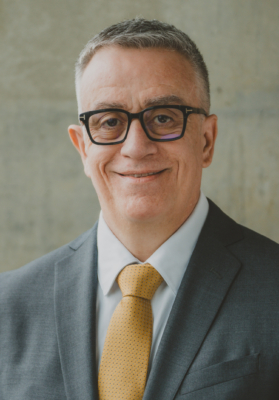 Dr. Barral Sanchez’ appointment was announced in February by UCSF School of Medicine Dean Talmadge E. King, Jr., MD as the regional campus prepares to celebrate its 50th anniversary this year.
Dr. Barral Sanchez’ appointment was announced in February by UCSF School of Medicine Dean Talmadge E. King, Jr., MD as the regional campus prepares to celebrate its 50th anniversary this year.
He said Dr. Barral Sánchez oversees medical education, faculty development and research growth, including an expanding partnership with UC Merced, also a CVHEC member.
“This newly established role supports UCSF Fresno’s expansion as a regional campus,” said Dean King at the time.
Founded in 1975, UCSF Fresno was established to address the physician shortage in the San Joaquin Valley and help meet the region’s health care needs.
“With a career dedicated to academic leadership, faculty mentorship and community-driven medical education, Dr. Barral Sánchez is well-positioned to advance the UCSF Fresno Regional Campus’s mission of improving health care in the San Joaquin Valley,” added Dean King.
Dr. Barral Sánchez joins UCSF from the Kaiser Permanente Bernard J. Tyson School of Medicine (KPSOM), where he has served as the inaugural chair of Biomedical Science and founding co-director of the MD-PhD Program with Caltech since 2018. He previously held leadership roles at the University of Texas Medical Branch in Galveston, including senior associate dean for Academic Affairs and vice chair of Neuroscience, Cell Biology and Anatomy.
“I am looking forward to immersing myself in UCSF Fresno and learning what the needs and aspirations are of the campus community, Fresno and the San Joaquin Valley,” said Dr. Barral Sánchez. “I want to become embedded in the environment and learn how I can become a catalyst for enhancing the overall educational and research culture — everything that comprises an academic medical center and to enhance attracting health care providers to train and remain in the region.”
See original UCSF-Fresno press release.
For media inquiries about UCSF Fresno: Brandy Ramos Nikaido brandy.nikaido@ucsf.edu
For media inquiries about the CVHEC Board: Tom Uribes cvheccommunications@mail.fresnostate.edu


